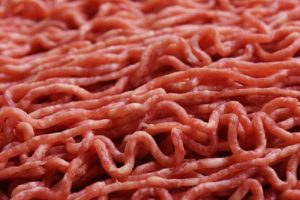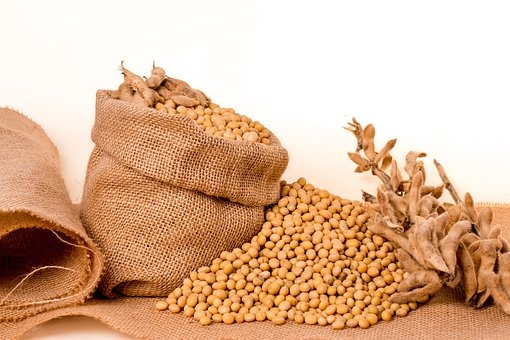
Currently, there are 613 million women (15 -49yrs) in the world who are anaemic. 578 million of them are not pregnant and about 35.5 million are pregnant. People who are anaemic do not have enough red blood cells in their blood. When they do laboratory tests, they see that their haemoglobin level is less than 12g/dl.
Anaemia is most common in women. In Nigeria, a huge number of women happen to be anaemic. This is almost similar to countries like India, Pakistan, China and Indonesia were almost half of their female populations are anaemic.
The most common cause of Anaemia globally is a deficiency (lack or shortage) of Iron. Other causes include infections by parasites such as malaria, hookworm; chronic inflammations and deficiency in some vitamins like Vitamin A, B12, and folate (folic acid).

How Does This Affect You?
- If your nutrition has been poor or lacking in iron-rich foods, you can be anemic
- If you are eating foods that to do encourage absorption of iron in your body. E.g. drinking milk, yoghurt, tea or coffee while eating iron-rich foods.
- If you have had Malaria, which is endemic in Nigeria, there is the tendency that your iron levels would be low thus can lead to anaemia. (Malaria contributes about 15% of Anaemia in mothers).
- Monthly menstrual blood loss especially heavy blood loss leads to Anaemia
- If you or your children walk barefoot on contaminated soil, eat foods, drink water or bath in water that has been contaminated by these parasites, you can get infected and these infections affect your body’s ability to use its iron thereby causing anaemia.
- Anaemia is common in women who have been pregnant and/or breastfeeding.
- Some oral contraceptive pills or uterine devices can induce Anaemia

Consequences of Anaemia
- Anaemia contributes to 11% of maternal deaths (this is preventable)
- Anaemia is associated with low birth weight (when baby weighs less than 2.5kg)
- It also causes the child growing in the womb to be malnourished before being born
- In children, Anaemia damages intellectual development and reduces immunity hence you find such children falling sick often.
- Anaemia can lead to premature death in children
- Anaemia reduces appetite and causes more malnutrition
- Multiple pregnancies or lack of child spacing reduces your body’s ability to replenish its nutrient sources, especially Babies in the womb use their mothers iron supply too. All these can lead Anaemia.
- Anaemia is reducing the productivity of a huge number of the Nigerian work force and it constantly affects the Nigerian economic growth.

What Is the Way Forward?
- Eat diverse diets especially those rich in iron
Eating a variety (diverse) of meals increases your access to micronutrients. Iron, which is a micronutrient, can be found in foods like meat, chicken, organ meats like liver; beans, soybeans, locust beans, dark green vegetables, nuts and seeds, and spices. Also, eating fortified foods like iron-fortified flour can help.
The essence of eating a variety of meals is so that your body would get access to other vitamins and minerals needed to boost your immunity and maintain your health.
Also, consuming Foods rich in Vitamin C help your body to absorb iron better.
Click here for more information on Iron –rich foods for infants and toddlers.
- Control Infections
If you have malaria or other parasitic infections, go to the hospital for treatment. After taking care of this, ensure that you eat nutritious foods that can supply you with iron, vitamin B12, folate.
- Take Supplements
Doctors can prescribe iron supplements or a multivitamin that contains other nutrients that work for your body along with iron such as folic acid, vitamin B12, and Vitamin A.
Anaemia is often not seen in time, but the consequences are severe. Severe signs include fatigue, dizziness, and drowsiness. If affects your ability to do your tasks effectively and affects the future of children even before they are born.
Anaemia does not discriminate. It can affect every child or woman whether rich or not rich.
So, are you, your sisters, mothers, or friends among the Nigerian women who are anaemic? Let us act. Let us reduce the statistics by eating diverse meals, eating foods rich in iron, addressing infections, and taking supplements if needed.
I charge you to stay informed. Improve your health and health of those around you. Eat for your health, eat for your future.
Eat better, Live better.
Notes:
Development Initiatives, 2017. Global Nutrition Report 2017: Nourishing the SDGs. Bristol, UK: Development Initiatives. https://www.globalnutritionreport.org/files/2017/11/Report_2017.pdf



[…] Foods that are rich in iron are particularly important for children’s brain to grow. This is a big issue in Nigeria and a real source of concern if we want to have a future of successful people who can use their brains effectively. Iron is also important for women too because they are more prone to deficiencies of iron as a result of heavy menstruation, pregnancy and lactation. Iron helps to reduce fatigue and can help with focus. Foods rich in iron include beans, liver, meat. For more about Iron, click here. […]
[…] Micronutrients are very important for the body. These are nutrients needed in small quantities yet their effects on the body, especially in terms of maintenance and rejuvenation, is powerful. Deficiencies in micronutrients can even cause irreversible mental development in children and in some cases leads to death. When you consume legumes, especially a variety of it, you can easily get access to micronutrients such as iron, manganese, copper, folate, vitamin B1, Vitamin B2. […]
[…] growth and development and even death in some cases. For example, a deficiency in iron can lead to anaemia. Anaemia is a leading cause of death in women and children; it reduces immunity, causes […]